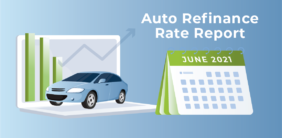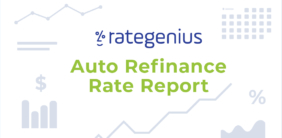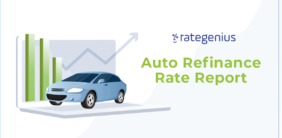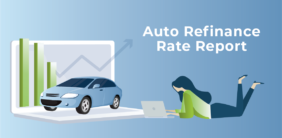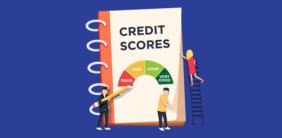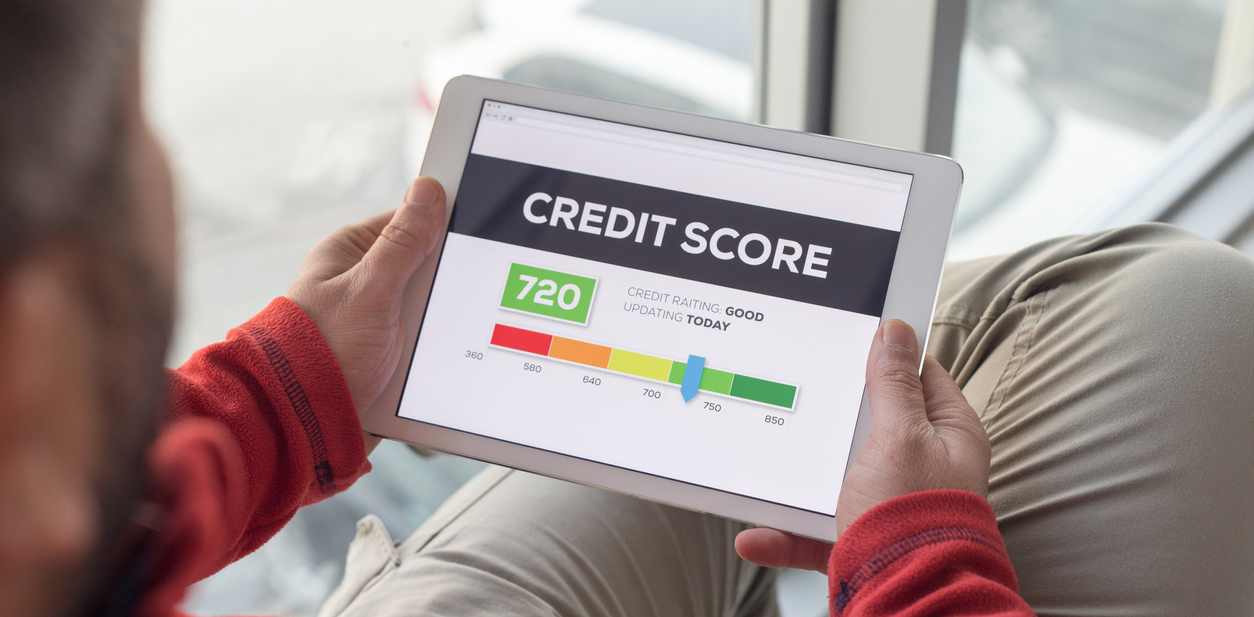Not all car loans are created equal. Some are better than others.
If you’ve been paying off your car loan for a while, you might be wondering whether you really got the best deal or not. There are actually a lot of signs that can help tell you whether you already have a good car loan, or if it’s better to refinance your car loan. Here’s what to look for.
What’s Your Interest Rate?
One of the single biggest factors that determines whether you have a good car loan or not is your interest rate. The difference between a good rate and a bad rate might not appear that big. But since you’ll be paying that rate over the course of several years, it can actually tack on hundreds or thousands of extra dollars to your loan cost if you get a bad rate.
The average interest rate on a 60-month car loan was 4.80% during the last quarter of 2020, according to the Federal Reserve. Generally, the better your credit, the better the rate you can qualify for. The opposite is also true: You’ll usually get a higher interest rate if your credit score isn’t the best.
If your interest rate isn’t the greatest, don’t panic — there are ways to fix that, which we’ll share later in this piece.
What’s Your Term Length?
Many experts recommend sticking to a five-year car loan or less, if you can afford it. That’s not what most borrowers are doing these days, however.
Over the years, people are increasingly switching to six-year, seven-year, or even longer loans. According to the most recent Experian Finance Market Report, almost 65% of used car loans are now for over five years in length.
Lenders offer these long-term loans so you can get a nicer car, a lower monthly payment, or both. But that costs a lot more money, and since repayment takes longer, you’re more at risk than with a shorter loan term. People with longer-term car loans are twice as likely to default on their loan, according to the Consumer Financial Protection Bureau.
What’s Your Monthly Payment?
There’s no single right or wrong number for how much your monthly payment should be. It’s entirely dependent on your own financial situation.
But in general, you should be able to easily afford your monthly car payment without stressing out or running out of money before your next paycheck. You should also be able to afford the following things in addition to your car payment:
- Savings
- Other debt payments
- Necessary expenses (rent, utilities, groceries, etc.)
- Some extra expenses (entertainment, dining out, etc.)
If you’re not able to make ends meet and creating a budget doesn’t help, your monthly car payment might be too high. You may need to make some financial decisions, whether that’s refinancing to increase the length of the loan (which brings your payment down), cutting back your expenses, or increasing your income.
How Much Do You Owe Compared To How Much Your Car Is Worth?
Have you ever heard of being “upside down” or having “negative equity” on your loan? It’s when you owe more on your car loan than what your car is actually worth. It can happen if you get into a car accident and damage your car, for example, or if your car is depreciating faster than you’re paying off the loan.
To find out the total amount you owe on your loan, you’ll need to check your most recent lender statement. To find out how much your car is worth, you can check tools like the NADAguides, Edmunds, or Kelley Blue Book. Divide your car loan balance by your car’s value, multiply by 100, and you get your loan-to-value ratio, or LTV. It’s basically how much of your car’s value you’ve already paid off.
If your LTV is over 100%, it means you owe more on the loan than your car is worth. That’s not unusual to be over 100%, but you may want to consider getting a GAP waiver or insurance to help cover the loan balance beyond your car’s value in the event your vehicle is totaled.
Car (LTV) Loan-to-Value Calculator
A loan-to-value ratio over 100% means you owe more on your loan than your vehicle is worth. An LTV over 125% can make it harder, but not impossible, to qualify for a refinance loan.
If your LTV is less than 100%, your car's value is higher than what you owe on your loan. The lower your LTV, the better.
Did You Purchase Your Car From a Buy-Here-Pay-Here Dealer?
Most car dealers have an in-house financing department where they match you up with lenders who can finance your loan. That’s a different thing entirely from so-called “buy-here-pay-here lenders,” who are the ones who directly finance your loan.
Buy-here-pay-here lenders generally charge extremely high interest rates, which is a form of predatory lending. Their business model works differently: They almost count on people not paying the loans so that they can repossess the vehicle and re-sell it to another person, and repeat the process over ad infinitum with the same car.
Here are some signs that you actually have a bar car loan from a buy-here-pay-here dealership:
- The dealership advertises “no credit needed” or “bad credit welcome.”
- The dealership installed a locking device or tracker in case you default on the loan.
- The dealership didn’t connect you with a lender, but instead financed the loan itself.
Did You Shop Around Before You Got the Loan?
Buying a car is tough, and it’s understandable if you took the first offer of financing that came your way. But chances are, if you didn’t do any shopping around of your own, you’re probably overpaying.
There are hundreds or thousands of auto loan lenders out there. Each one has their own requirements and sets their own rates. It’s impossible to check them all, but if you check around with local lenders (especially credit unions) or use marketplaces like RateGenius, you’ll quickly be able to narrow down the best option for you within a short amount of time.
Did You Get Preapproved Before You Got Your Loan?
While you were shopping around, another good way to get the best deal is to get preapproved for a loan. This helps you in several ways. It can help you stay within budget when you go to shop for the actual car.
You can also use it as a negotiation tool with the car dealership. Sometimes, you may even be able to get a 0% car loan for a certain number of months this way which can save you a lot of money in the long run.
Has Your Credit Improved Since You Got Your Loan?
If your credit has gone up since you took out your car loan, there’s a good chance that you’re paying more than you need to. That’s because lenders often reward you with better rates when your credit score is higher.
According to Experian’s Finance Market Report Q4 2020, here’s the average rate that lenders are charging on loans for new cars according to their customer’s credit scores:
| Credit Score |
Avg. Car Loan Rate |
| 781+ |
2.65% |
| 661 – 780 |
3.69% |
| 601 – 660 |
6.64% |
| 501 – 600 |
10.58% |
| 300 – 500 |
14.20% |
You can check your own credit score on sites like Discover Scorecard, Credit Karma, or your credit card statement. Make sure to take note of what your score was when you signed your loan and what it is now. If your score’s gone up, it might be time to consider refinancing your loan.
If You Need to Improve Your Credit…
Not everyone has good credit, and that’s OK. But it does mean that certain things will be harder, like getting a good rate on your car loan. If you have bad credit, it’s important to know that there are things you can do to help improve your credit history. Here are some steps to take:
- Pay down your credit card debt
- Put your bill payments on auto pay
- Try a service such as Experian Boost
- Check your credit report and dispute any errors (if you find any)
- Hold off on applying for any new credit (even personal loans) unless you absolutely need it
- Reach out to lenders before you default if you’re having trouble making payments
Can You Get a Better Loan Rate by Refinancing?
A lot of people wonder if it’s better to refinance your car loan. If you can save money, then the answer is usually an emphatic yes.
Even better is if you can save money while getting a shorter loan term too. Then you’ll get the best of both worlds: You’ll be out of debt faster, and you’ll save money that you can use for other things.
To recap, you might be able to get a lower interest rate by refinancing if:
- Your credit score has increased
- Your monthly payment is too high
- You currently have a high interest rate
- You didn’t shop around for the best lender the first time around
Refinancing isn’t as tough as it sounds. All you need to do is shop around for rates.
About The Author
RateGenius
A better way to refinance your auto loan. RateGenius works with 150+ lenders nationwide to help you save money on your car payments. Since 1999, we've helped customers find the most competitive interest rate to refinance their loans on cars, trucks, and SUVs. www.rategenius.com
;)

